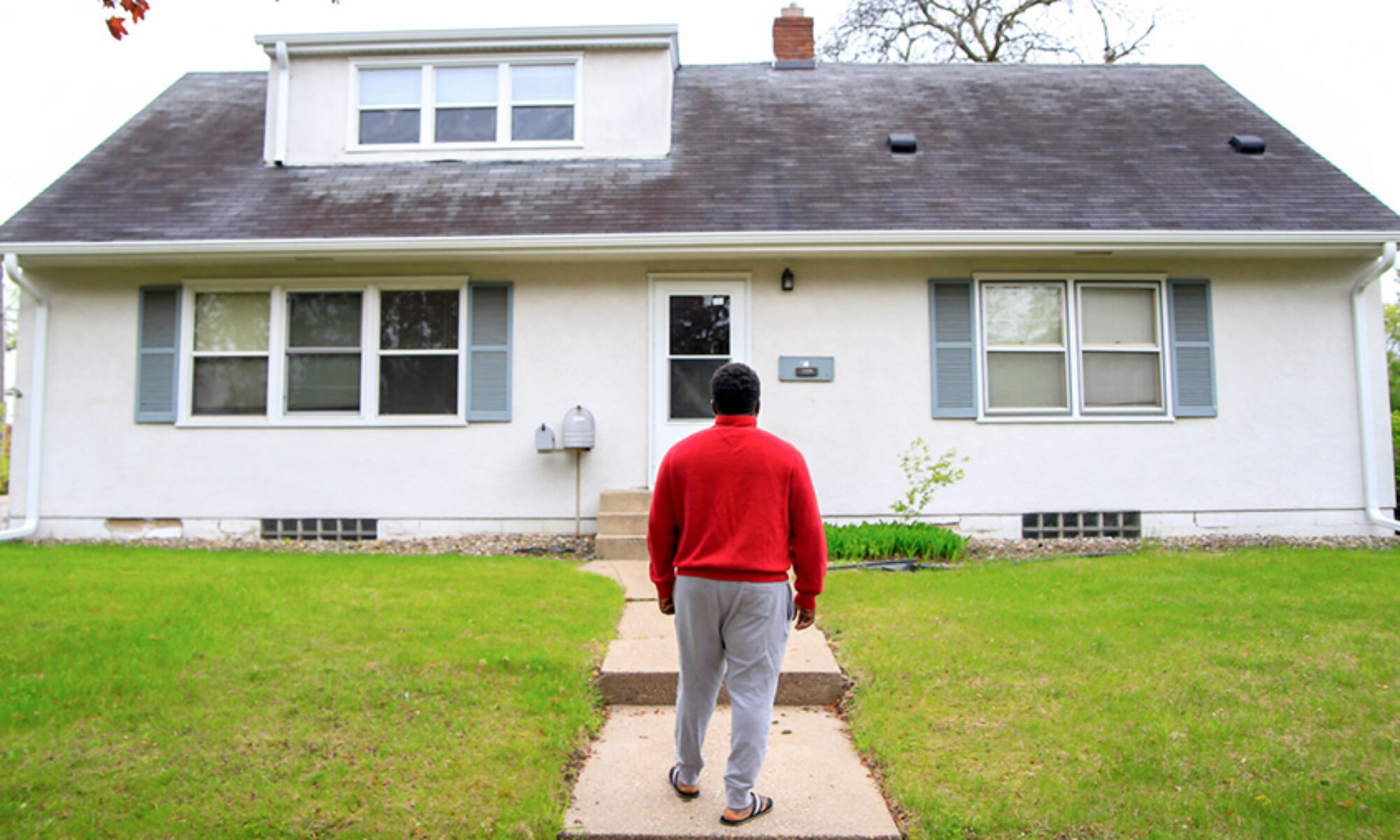Kelsey is our Community Coordinator here at IAFR Jonathan House.
“I oversee our trainings, volunteer system, and overall engagement. I also work pretty closely with our residents regarding some aspects of our programming, such as goal meetings. During this time, I meet with residents to discuss their ambitions for the future and together we work through steps to get where they want to be.
I really like this aspect of the work because it is a tangible way to provide support (and maybe some hope), and it gives me a chance to get to know our residents better. It has also become a way to just share life. We all have hopes, dreams, disappointments, insecurities, and so forth, and when our residents are willing to take time to share those intimate feelings with me, I feel a deep sense of connection and joy. I hope they do too!
How did you first learn about the plight of asylum-seeking individuals in America?
I don’t remember exactly, but the first time I was really struck by the situation I was interning with a Boston based nonprofit. Through my work there I ended up becoming close friends with a displaced family that was in a really horrible situation at the time. Even in the midst of it, they were constantly taking time to care for me physically, mentally, and spiritually and I was touched by the mutual benefit of sharing our lives.
How did you first get involved in Jonathan House?
I first got involved with asylum seekers in Rome, Italy. I was studying there and volunteering at a drop-in center, which I later learned was run by IAFR. I ended up really loving the work there and went back to Italy for a time with IAFR before returning to the United States to work with Jonathan House. In between my two stints in Italy I was interning at a nonprofit in Boston where we were exploring community style housing options for displaced people and I connected with Jonathan House at that time to interview them for a research project. I never would have imagined I would end up working with them at the time!
What’s something that everyone can do to help the cause of asylum-seeking individuals in the US?
I guess I would say that all people who have been displaced are far more than people in need. There is a temptation to label people in a certain manner when we read only one part of their story. At Jonathan House for example, our residents are not only seeking asylum, they are also doctors, language gurus, international finance managers, parents, expert knitters, basketball and soccer fans, incredible chefs, curious, funny, bright, and a million other things. They are full humans who have, due to circumstances out of their control, found themselves in a hard spot.
Something everyone can do is be aware of both of those things when they meet an asylum-seeker. Sensitivity to the fact that seeking asylum in the U.S. genuinely puts you in a very vulnerable situation that sometimes requires tangible help, and sensitive to the fact that “asylum seeker” is one title of many.
Is there a statistic or fact that has surprised you concerning asylum seeking individuals?
I think one thing that is surprising is that, according to the most recent statistic I have seen, asylum seekers are waiting an average of 1,000 days to have resolution on their cases. That is nearly three years of living in uncertainty, sometimes with lack of access to services to help meet the most basic needs, let alone sustaining “life, liberty, and the pursuit of happiness.”
What is something asylum seeking individuals have taught you?
I have learned a lot from the willingness of my asylum-seeking friends to open their lives to me. They have shared stories and wisdom that they have collected along their lives journeys, they have shared practical advice and perspective in my moments of difficulty, they have shared hugs and tender moments of laughter, they have fed me, given me clothing, then given me more food! I guess to sum it up, they have taught me a lot about what it means to love someone openly, and without condition, in a way that invites you to let your guard down, knowing you are safe enough to come as you are.
What languages do you speak?
English and Italian. I also studied German in school, but it would be a stretch to say I speak it now. I also have built my Oromo vocabulary to a solid 5-10 words, so it seems that should count for something.
Do you have any hobbies?
Reading, studying Italian, yoga, going to the gym, and cooking.

